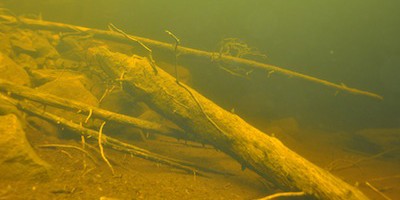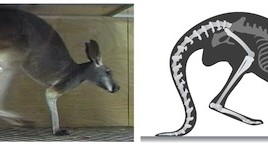
Some of these black spruce trees have been buried under lakes in northern Quebec since the middle ages. Researchers examining tree rings from these ancient logs found that eastern Canada experience abrupt and strong shifts to colder summers following volcanic eruptions in the 13th and 19th centuries. (Photo credit: Dominique Arsenault)
New data from trees preserved in lakes in the Taiga of northern Quebec show that eastern Canada experienced much colder than usual summers following distant volcanic eruptions in the 13th century, and again in the 19th century.
The so-called ‘Little Ice Age’ is well-documented in the historical and tree ring records worldwide, but the strength and duration of cold episodes following the large volcanic eruptions has remained a topic of debate and until now there was little data from eastern North America.
The authors note the abruptness of the shift to colder summers and suggest that eastern Canada may be particularly sensitive to the effects of volcanic eruptions.
Original research paper published in the Proceedings of the National Academy of Sciences (USA) on June 30, 2014.
Names and affiliations of selected authors


